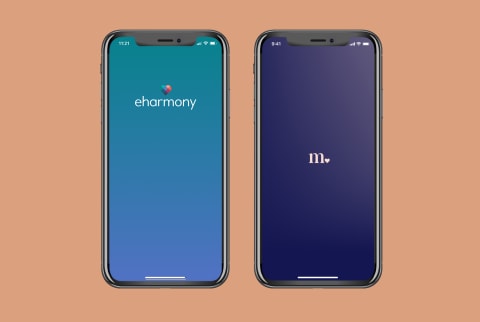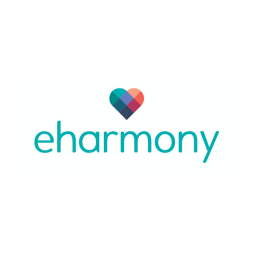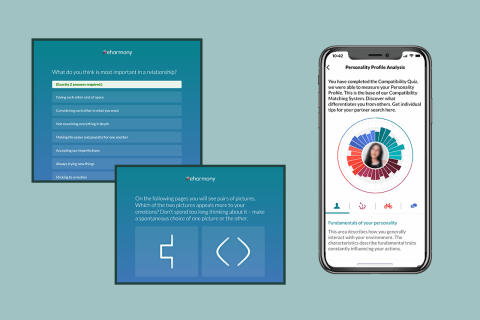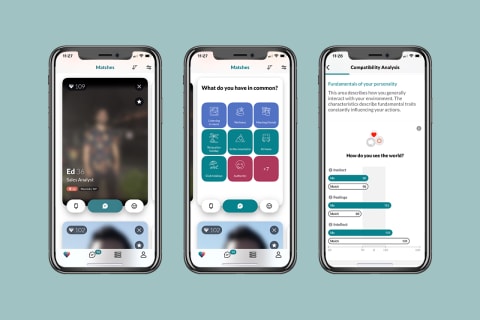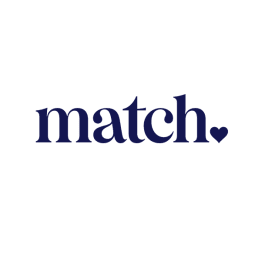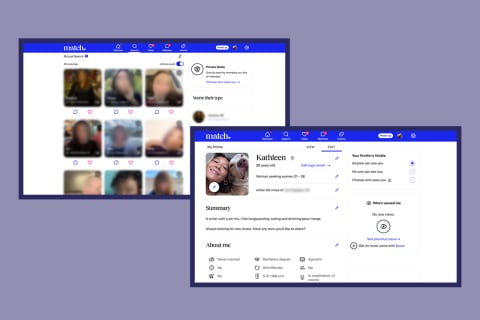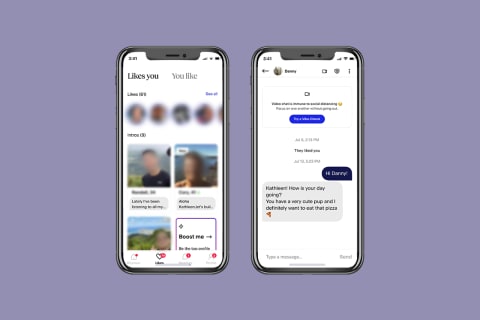The good news? With all of this new technology at our fingertips, it’s never been easier to find a romantic connection. And if you’re looking for a serious relationship, eharmony and Match happen to reign supreme in the world of dating apps. These dating sites were the original dating hubs for singles to find long-lasting love, near and far. For both, the algorithm relied on a high level of compatibility filtering via in-depth profile information and quizzes to parse out your future partner. Because of the level of commitment it takes to fill out your profile, eharmony and Match have held tight to their reputation as a detail-rich dating destination for serious-minded daters. But which one is the better app to use for what you’re looking for in 2023? To take a closer look between eharmony and Match, we’ve reached out to dating experts and the sites’ spokespeople, and we’ve exhaustively researched all the pros and cons to help you figure out which is the best app for your needs. Read on to learn more about each of these dating apps’ unique features, success rate, user base, and more. To optimize success, it’s important to recognize that, for every dating app out there, there’s a different approach and demographic to lean into. Some apps, such as Tinder and Feeld, lean into casual sex—so it’s easier to form casual connections there. Other apps, such as Hinge, eharmony, and Match, are known for interesting profile prompts and a curated feed of high-compatibility matches. This latter category generally translates to more serious daters. “We tend to see more cisgender heterosexual singles use Match and eharmony,” certified sex and couples therapist Lee Phillips, LCSW, CST, tells mbg. “For people who would like to pursue a long-term relationship, people use both apps.” (Here’s our full eharmony review if you want a deeper dive.) When you set up your bio on your page, take it as an opportunity to showcase yourself and what you’re all about since you’ll have plenty of room. The extra detail will pay off with more information for its AI to improve the algorithm for you later on. Once completed, eharmony leverages those same data points to match you with other users based on your answers and compatibility score. Pro tip: Search around for deals, as eharmony offers discounts regularly. Although they price out their plans with monthly rates, you’ll need to either pay for the entire subscription in one lump sum or in four monthly installments. Be sure to cancel auto-renew for whatever plan you choose so it doesn’t accidentally enroll you for another membership unless you choose to opt into it. Licensed marriage therapist Omar Ruiz, LMFT, notes Match has the bonus of appealing to people of all types – from dating to serious relationships and everything in between. (Here’s our full Match review if you want a deeper dive.) Their cheapest plan, their Standard Plan, for one year is $12 per month, or their Premium Plan for one year is priced at $14. The plans can be paid in one go or through four installments. If you want to purchase the premium add-ons like read receipts, Match Phone, or allowing any user to respond to your messages, it can run between $2 and $10. “As with all dating apps, the usage varies geographically, including usage by age,” she tells mbg. “For example, within major cities, neither eharmony nor Match is widely used for people under 60. Even outside of metropolitan areas, in my experience, Match is more popular than eharmony.” As for which app is worth your buck, Dineen recommends choosing the dating service that works best for you and your unique situation. Just like any other person you’re dating, treat the apps the same way. Be choosy and selectively pick the apps that can garner success for you. Don’t look at the overall general reviews, but instead check out reviews from people who are in a similar demographic and geographic area. If you’re interested in exploring polyamory or LGBTQ+ relationships, eharmony and Match may not hold a candle to apps like Bumble, OkCupid, and Hinge. “Even though eharmony now has gay and lesbian users, it’s not that inclusive of the whole of the LGBTQ community. This is partly because eharmony was originally started as a more ’traditional’ pro-marriage dating site, founded by a Christian, and it’s still very much thought of in that way,” Dineen explains. “By comparison, Match is more inclusive than eharmony of the LGBTQ community, but it’s still not as inclusive as apps like Tinder and OkCupid or LGBTQ-specific apps like Her, Grindr, and Feeld,” she says. eharmony won’t be for you if you want to swipe and go, while Match probably won’t be your speed if you don’t want to commit to putting in the time and effort to search for your matches. Times have changed, but eharmony and Match have been able to keep up with contemporary dating and connecting people with like-minded singles to nurture enduring relationships. If you don’t mind spending a little bit of money on your dating life, these dating apps are attractive options to widen your net to find your match.


